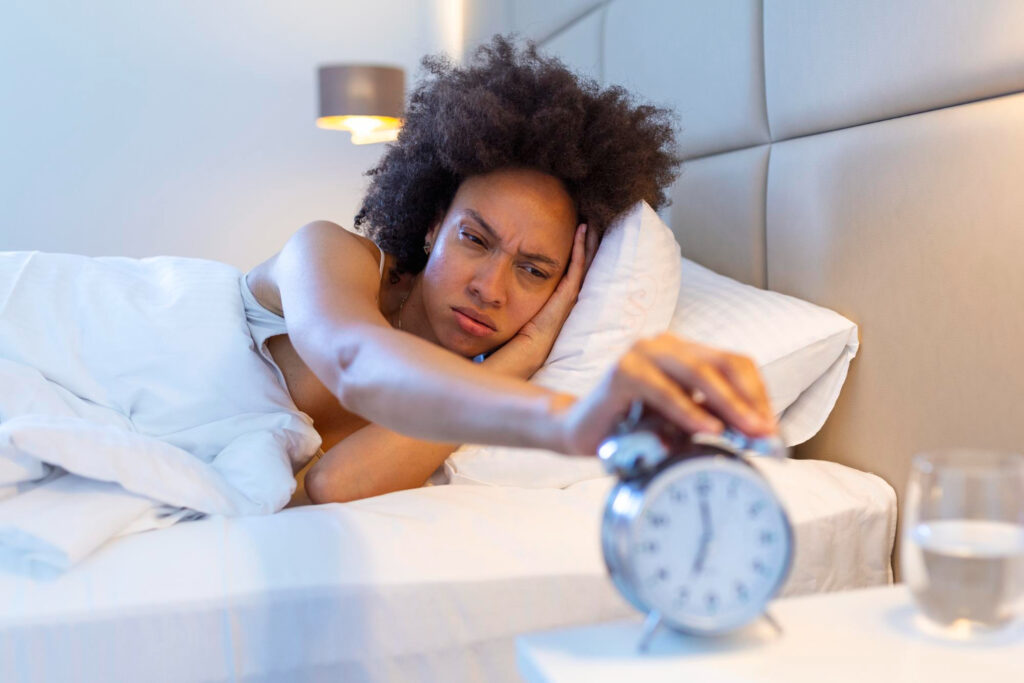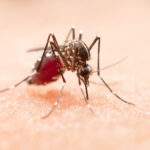
In this article
Hormonal imbalances can significantly impact your sleep patterns, leading to what is known as hormonal insomnia. This type of insomnia often occurs during periods of hormonal fluctuation, such as pregnancy and menopause, but other hormones, like melatonin, also play a crucial role in sleep regulation.
Understanding Hormonal Insomnia
Hormones are intricately linked to your sleep cycle, meaning that changes in hormone levels can lead to sleep disturbances for anyone. Hormonal changes, particularly those experienced during pregnancy and menopause, can disrupt sleep. Additionally, the stress hormone cortisol is associated with sleep problems.
Symptoms of Hormonal Insomnia
Hormonal insomnia is caused by fluctuations in hormone levels. It is more common in individuals with higher levels of female reproductive hormones. Symptoms may include:
- Difficulty falling asleep
- Waking up in the middle of the night and struggling to fall back asleep
- Waking up earlier than intended
- Trouble maintaining a regular sleep schedule
- Fatigue, irritability, and difficulty concentrating due to lack of sleep
Causes of Hormonal Insomnia
Several factors can contribute to hormonal shifts that trigger insomnia:
Pregnancy
Hormonal changes during and after pregnancy can lead to insomnia. These changes, combined with factors like frequent urination, discomfort, and anxiety, can disrupt sleep.
Menopause
Menopause can bring about numerous uncomfortable symptoms, with insomnia being one of the most common. During perimenopause, the years leading up to menopause, hormone levels fluctuate dramatically, causing hot flashes, night sweats, and other symptoms that hinder sleep.
Thyroid Issues
Thyroid conditions, such as hypothyroidism (underactive thyroid) and hyperthyroidism (overactive thyroid), can affect sleep. Imbalances in thyroid hormones are linked to sleep problems and other symptoms like anxiety, mood changes, fatigue, and muscle tremors.
Stress
Chronic stress can alter hormone levels, including cortisol, which can disrupt sleep. Stress-related sleep disturbances are often accompanied by mental health symptoms, low sex drive, and increased risk of heart disease.
How Hormones Affect Sleep
Different hormones influence your sleep cycle in various ways:
Melatonin
Known as the sleep hormone, melatonin signals your brain that it is time to sleep. Its production increases in response to darkness and decreases with age, which is why older adults often experience insomnia.
Cortisol
Cortisol, the stress hormone, is released in response to stress or anxiety. Elevated cortisol levels can make it difficult to fall or stay asleep.
Estrogen and Progesterone
Both estrogen and progesterone are involved in sleep regulation, although the exact mechanisms are not fully understood. Fluctuations in these hormones, such as those during pregnancy and menopause, can affect sleep quality.
Other Hormones
Other hormones that impact sleep include growth hormone, leptin (the satiety hormone), and ghrelin (the hunger hormone).
Treating Hormonal Insomnia
To manage hormonal insomnia, healthcare professionals may recommend various approaches:
Lifestyle Changes
Improving sleep hygiene can enhance sleep quality. This includes maintaining a consistent sleep schedule and avoiding electronics and caffeine before bedtime.
Natural Remedies
Supplements like melatonin can help with falling asleep. It is essential to consult a doctor to determine safe supplements and appropriate dosages.
Behavioral Therapies
Cognitive behavioral therapy (CBT) and other psychotherapies can teach effective coping skills to improve sleep.
Medications
In some cases, doctors may prescribe sleep medications.
Consulting with Your Doctor
If you experience symptoms of insomnia, it is crucial to consult a healthcare professional. They can determine if your insomnia is related to a hormonal imbalance or another underlying issue. Blood tests can measure hormone levels and help rule out other medical conditions.
Takeaway
Hormonal insomnia can affect anyone and may result from pregnancy, menopause, thyroid conditions, or stress. Hormones such as melatonin, cortisol, estrogen, and progesterone play significant roles in sleep regulation. If you experience insomnia, seeking medical advice is essential to identify the cause and find an effective treatment plan
A Quick Review
Hormonal insomnia is caused by fluctuations in hormone levels, affecting sleep patterns. Common during pregnancy and menopause, and influenced by hormones like cortisol and melatonin. Symptoms include difficulty falling asleep, frequent awakenings, and early morning wakefulness. Treatment options include lifestyle changes, natural remedies, behavioral therapies, and medications.











